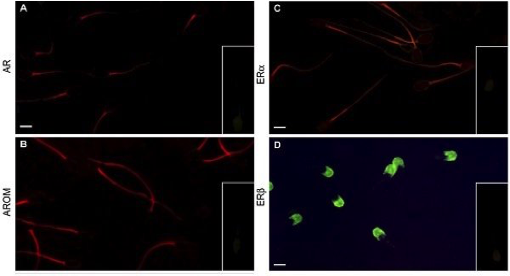Cat. #153638
Anti-CYP450 Aromatase [H4]
Cat. #: 153638
Sub-type: Primary antibody
Unit size: 100 ug
Availability: 10-12 weeks
Target: CYP450 Aromatase
Class: Monoclonal
Application: IHC ; IF ; WB
Reactivity: Human
Host: Mouse
£300.00
This fee is applicable only for non-profit organisations. If you are a for-profit organisation or a researcher working on commercially-sponsored academic research, you will need to contact our licensing team for a commercial use license.
Contributor
Institute: BioServ UK Ltd
Tool Details
*FOR RESEARCH USE ONLY (for other uses, please contact the licensing team)
- Name: Anti-CYP450 Aromatase [H4]
- Alternate name: Aromatase, CYPXIX, Cytochrome P-45AROM, Cytochrome P45 19A1, Estrogen synthase, CYP19A1, ARO1, CYAR, CYP19
- Research fields: Cell signaling and signal transduction
- Clone: H4
- Tool sub type: Primary antibody
- Class: Monoclonal
- Conjugation: Unconjugated
- Molecular weight: 55 kDa
- Strain: Balb/c
- Reactivity: Human
- Host: Mouse
- Application: IHC ; IF ; WB
- Description: CYP450 Aromatase is part of the CYP19A1 family involved in the aromatization of androgens to estrogens, a highly conserved mechanism amongst mammals. Clone H4 recognizes a conserved epitope on the CYP450 aromatase, allowing for detection of aromatase levels using various analysis methods.
- Immunogen: Synthetic peptide corresponding to AAs 376-390 of human aromatase (KALEDDVIGYPVKK)
- Isotype: IgG2a
- Myeloma used: Sp2/0-Ag14
- Recommended controls: Placenta
Target Details
- Target: CYP450 Aromatase
- Molecular weight: 55 kDa
- Tissue cell line specificity: Placenta
- Target background: CYP450 Aromatase is part of the CYP19A1 family involved in the aromatization of androgens to estrogens, a highly conserved mechanism amongst mammals. Clone H4 recognizes a conserved epitope on the CYP450 aromatase, allowing for detection of aromatase levels using various analysis methods.
Applications
- Application: IHC ; IF ; WB
Handling
- Format: Liquid
- Unit size: 100 ug
- Shipping conditions: Dry ice
References
- Amanatullah et al. 2017. Breast Cancer Res. 19(1):121. PMID: 29141657.
- Local estrogen axis in the human bone microenvironment regulates estrogenreceptor-positivebreast cancer cells.
- Wilsher et al. 2013. Reproduction. 145(6):541-54. PMID: 23550169.
- Ovarian and placental morphology and endocrine functions in the pregnant giraffe (Giraffa camelopardalis).
- Campbell et al. 2012. Endocrinology. 153(9):4533-43. PMID: 22778215.
- The role of anti-Mllerian hormone (AMH) during follicle development in a monovulatory species (sheep).
- Mlodawska et al. 2010. Theriogenology. 74(9):1707-12. PMID: 20932560.
- Immunohistochemical localization of aromatase during the development and atresia of ovarian follicles in prepubertal horses.
- Catalano et al. 2010. J Biol Chem. 285(8):5581-93. PMID: 20026603.
- Farnesoid X receptor, through the binding with steroidogenic factor 1-responsive element, inhibits aromatase expression in tumor Leydig cells.
- Sirianni et al. 2009. J Biol Chem. 284(42):28905-16. PMID: 19679653.
- Inhibition of cyclooxygenase-2 down-regulates aromatase activity and decreases proliferation of Leydig tumor cells.
- Rago et al. 2007. Reprod Biol Endocrinol. 5:23. PMID: 17553131.
- Cytochrome P450arom, androgen and estrogen receptors in pig sperm.
- Rago et al. 2005. Reprod Biol Endocrinol. 3:72. PMID: 16372909.
- Cytochrome P450 aromatase expression in human seminoma.
- Pakarainen et al. 2005. Mol Endocrinol. 19(10):2591-602. PMID: 15941853.
- Knockout of luteinizing hormone receptor abolishes the effects of follicle-stimulating hormone on preovulatory maturation and ovulation of mouse graafian follicles.
- Fazleabas et al. 2003. Fertil Steril. 80 Suppl 2:820-7. PMID: 14505759.
- Steroid receptor and aromatase expression in baboon endometriotic lesions.
- Turner et al. 2002. J Endocrinol. 172(1):21-30. PMID: 11786371.
- Development and validation of a new monoclonal antibody to mammalian aromatase.




